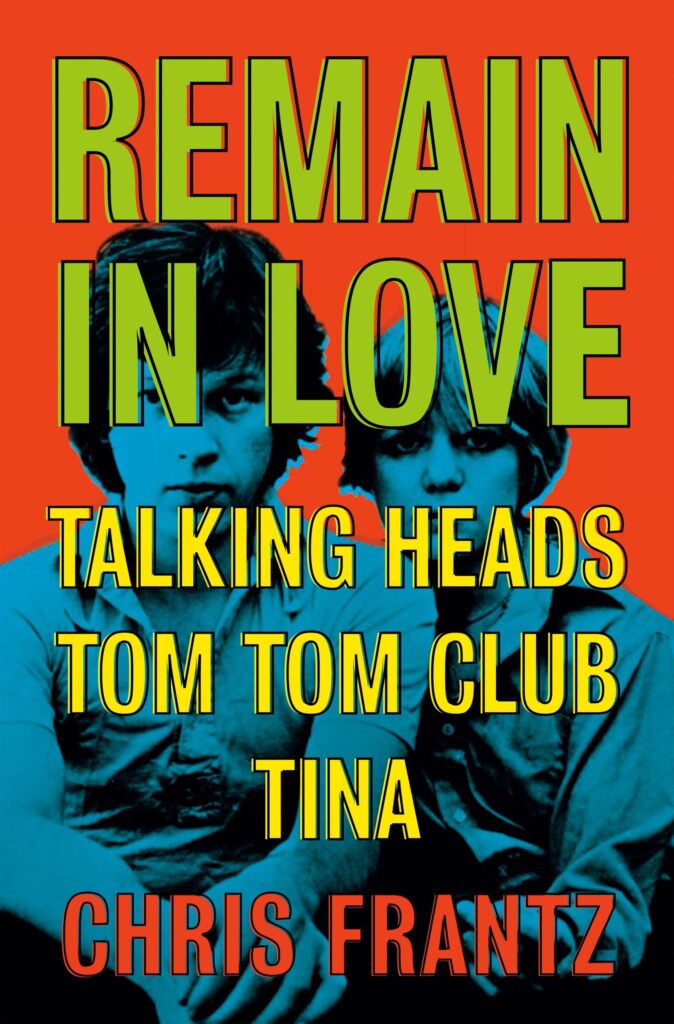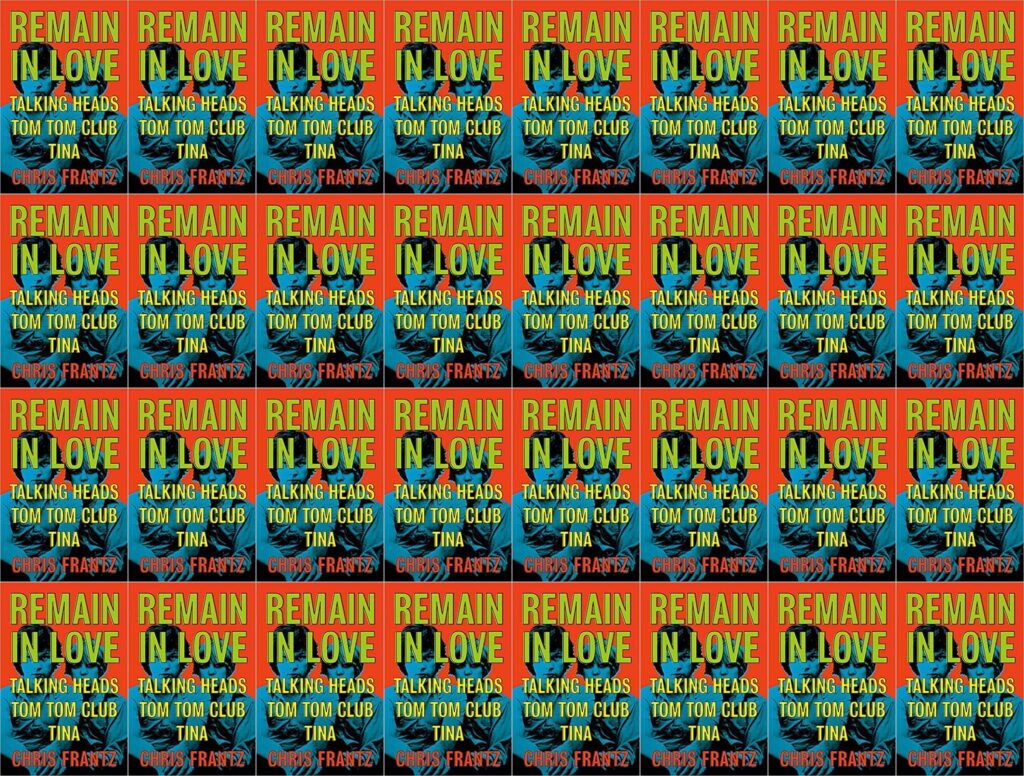Post-punk icon Chris Frantz discusses the principles that have helped him to survive and thrive across his storied career
Chris Frantz is best known for his role as drummer, co-writer and founder of Talking Heads. Frantz formed the group in 1975 with fellow art school-type David Byrne, later recruiting his partner (now wife) Tina Weymouth and Jerry Harrison into the band.
While their punk touring buddies were on a mission of cultural ‘slash and burn’, Talking Heads built something new and enthralling in its place, melding funk rhythms and jarring melodies into a new form of art-pop.
The rest is rock history: seven gold albums, critical acclaim, bust-ups, world tours and an influential legacy that can still be found some 45 years on, resonating in the work of innovators like St Vincent.
Later, Chris Frantz and Tina Weymouth would pull off a similar trick with their band Tom Tom Club, channeling an experimental blend of lilting tropical beats and electronica that would prove fertile ground for early hip-hop samples.
“When you’re paying fifteen people to travel around the world and hotels and airplane tickets and everything, it just gets out of control”

Now Frantz has published an autobiography, Remain In Love, in which he documents his experiences in both groups and beyond. Like all the best bios, it’s packed with star-studded anecdotes, poignant reflection and a little score-settling, for good measure.
I spoke to Frantz, initially on behalf of the excellent Electronic Sound. However, I also took the chance to ask him some questions about some of the money mistakes, close calls and savvier moves Frantz and co made across their career for Creative Money. He was kind enough to share some really helpful insights…
Want to make sure you never miss a post?
Sign up to the Creative Money newsletter!
Let me read it first >
Creative Money is all about helping people in the creative industries – whether that’s art, music or writing – to figure out how to sustain what they do. What principles or decisions have helped you to sustain yourself as an artist?
“Well, Brian Eno, very early on, in 1978, when we were making More Songs About Buildings And Food – he didn’t tour behind his albums to promote them or anything. But he told us ‘You know, you can make a very good living if you keep your expenses down.’ It sounds like a no-brainer but a lot of people seem to forget that. If you keep your expenses down, you can actually survive. And you can also – he explained this to us – licence songs to the BBC. In his case, he was licencing instrumental tracks to the BBC for their various shows, and he was making not tonnes of money but he was making a good amount, a fair enough amount that he could survive.”
“We just paid the money and it wasn’t a terrible amount for just looking at a contract – and it saved our ass”

So how did you practically apply Eno’s advice? And did you ever make any major mistakes on the financial side?
“Well, we did very well for a long time because we were just a four-piece band. Then we threw that all out the window and had nine people on stage, and then the expenses got so high that, at the end of a very very successful world tour, Tina and I combined had $2,000 in the bank! That was right before we made the Tom Tom Club album and our accountant said ‘Chris and Tina, you gotta do something, you only got $2,000 in the bank…’ When you’re paying fifteen people to travel around the world and hotels and airplane tickets and everything, it just gets out of control. So, small is beautiful.”
That’s great advice. The other thing that stuck out to me from the book was your description of the close encounter with a contract that came via Lou Reed.
“Oh yes, that was a shocker too because, you know – you can imagine Lou Reed wants to produce your first album and you’re a band from Lower Manhattan and how perfect would that be? And then you go to see the lawyer about it and the lawyer says ‘Oh no, I would never allow one of my clients to sign one of these standard production agreements because, when all is said and done, you could have a hit album and you would never see a penny’. So yeah, that was a shock.”
“It sounds like a no-brainer but a lot of people seem to forget… If you keep your expenses down, you can actually survive”

You were a young band living on nothing in Bowery lofts at that time. I don’t imagine you had a lot of money to spare for legal advice. What made you decide to pay that money and get it looked at?
“Well, we felt like we didn’t have a lot of experience in this business, but we didn’t want to be stupid. I got a recommendation for a lawyer that we thought might be good, and my father [who was also a lawyer] said ‘Oh yes, he’s very good, go ahead…’ We made an appointment and the lawyer’s name was Peter Parcher – and he had been in the newspapers because he got Keith Richards off of a big heroine bust in Canada. He was able to swap jailtime for a concert to raise money for the blind and, well, that’s my kinda guy.
“We had a meeting with him and he said ‘I wanna introduce you to my partner here who this is his specialty’, and you know we just paid the money and it wasn’t a terrible amount for just looking at a contract – and it saved our ass.”
That was probably a $100-200 at the time. Who knows how much that saved you in the long run. It’s likely the best investment you ever made.
“Yeah, money well spent!”

Chris Frantz’s autobiography Remain In Love is published by White Rabbit and available now.
How I Make It Work is a series of interviews with a variety of creative professionals, where we discuss personal experiences and lessons learned about money in the creative industries.


